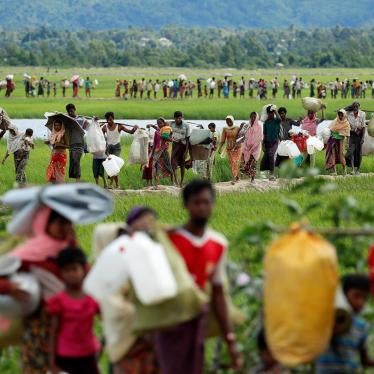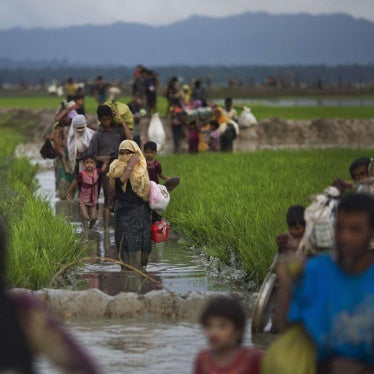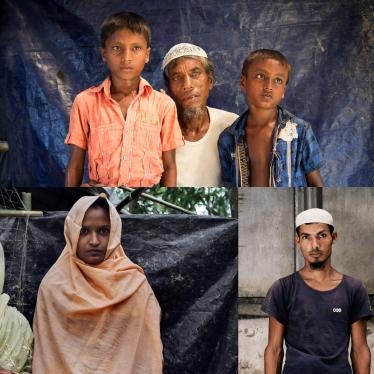Ashraf Ghani
President
Islamic Republic of Afghanistan
Dear President Ghani,
We write to you as nongovernmental organizations with a deep commitment to ending impunity for serious violations of international law in Afghanistan.
A pervasive culture of impunity has long existed in Afghanistan. The fall of the Taliban government in late 2001 and the establishment of a new government offered hope that Afghanistan could soon leave behind its long history of serious criminal offenses committed without punishment. The government’s decision to become a member of the International Criminal Court (ICC) further buoyed the hope that the rule of law would replace lawlessness.
Yet more than a decade later, serious violations persist in Afghanistan. Afghans continue to suffer human rights abuses committed by the Taliban and other insurgents, as well as by government and military officials and their agents. Perpetrators are rarely held to account and the victims are rarely able to obtain redress.
The Taliban and other insurgents have openly defied international law. In the case of strongmen and some government officials, this impunity is a product of the post-2001 era, when previous Afghan governments were unable or unwilling to challenge powerful commanders, warlords, and militias who operated throughout much of the country. It has undermined the development of institutions essential to Afghanistan’s stability, including the rule of law, the armed forces, and the justice system. Addressing the problem of impunity requires consistent support for justice and accountability, including prosecution of perpetrators in accordance with international standards and prompt and adequate redress for victims.
Enhance cooperation with the ICC
Against this backdrop, we welcome the government’s announcement on January 23 that it welcomes a visit of the ICC to Afghanistan and seeks more coordination between Afghanistan and the ICC.
As you know, the ICC’s Office of the Prosecutor, which began its analysis of the situation in Afghanistan in 2007, has already concluded that there is “a reasonable basis to believe” that war crimes and crimes against humanity have been committed in the country.[1]
To further its analysis, the ICC has highlighted the value of visiting Afghanistan. However, in its most recent report on its preliminary examination activities, the Office of the Prosecutor noted that its “planned mission for admissibility assessment purposes has been frustrated by the non-permissive situation in the country.”[2]
Moving forward, we urge the government to provide consistent and meaningful cooperation with the ICC. Indeed, as a member of the ICC, Afghanistan has a legal obligation to do so.
Specifically, we urge the government to facilitate meetings between the ICC and key Afghan government officials, including those in the Ministry of Foreign Affairs and the Ministry of Justice, as well as the National Security Advisor and the Attorney General. We also urge the government to facilitate the ICC’s access to important judicial officers, including prosecutors and justices on the Supreme Court.
In addition, we encourage the government to ratify the Agreement on Privileges and Immunities of the ICC, an international treaty that provides the ICC with the access and cooperation needed from governments. Ratification is an important step so that the court can carry out its work independently.
In the government’s recent statement, we note that the Ministry of Foreign Affairs has been tasked with “officially soliciting … the views and opinions of international partners about the nature of their interaction with the ICC.” While we understand the need for Afghanistan to liaise with its international partners, some of whom have been militarily involved in Afghanistan for a decade, we hope that this will not detract from Afghanistan fulfilling its legal obligation to extend its full cooperation to the ICC.
Increase civil society participation on technical committee aimed at improving ICC cooperation
We welcome the creation of a technical committee comprised of key government officials, the Afghanistan Independent Human Rights Commission, and the Judicial Board at the Presidential Palace to facilitate cooperation with the ICC. We urge you to include representatives of civil society working on transitional justice matters in the technical committee. The Transitional Justice Coordination Group (TJCG), composed of 26 national and international organizations as well as individual activists and experts, has worked on this issue for a decade. The TJCG includes victims’ groups and brings important insight and expertise. We urge you to include the TJCG as an observer to the technical committee.
Once again, we very much welcome the government’s stated commitment to cooperate with the ICC in its ongoing work in Afghanistan. We look forward to seeing concrete implementation of these promises to bring Afghanistan one step closer to ending the impunity that has harmed the people of Afghanistan for too long.
Sincerely,
Human Rights Watch
Transitional Justice Coordination Group
CC: Office of the Second Vice President








